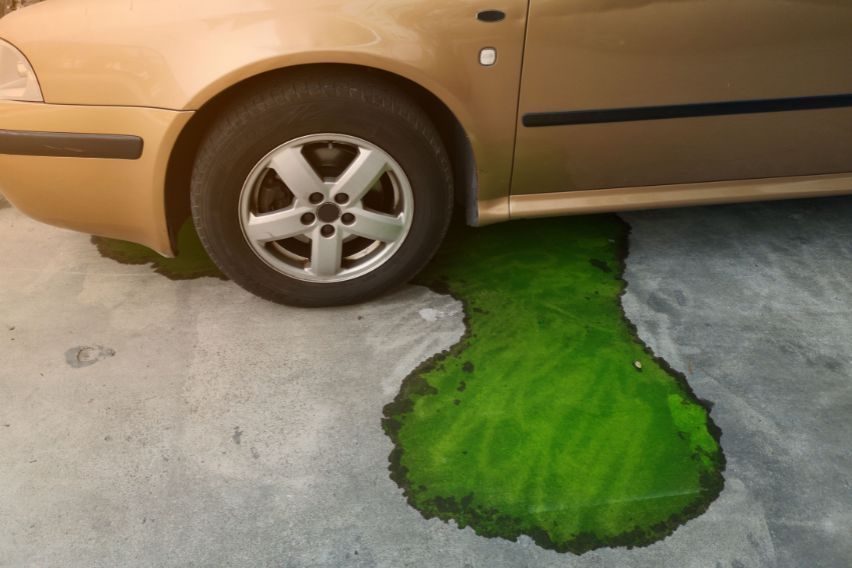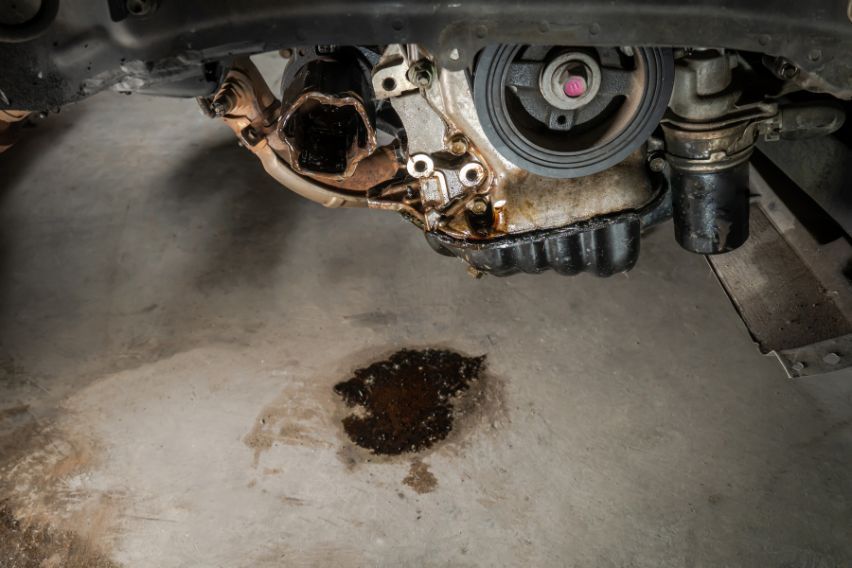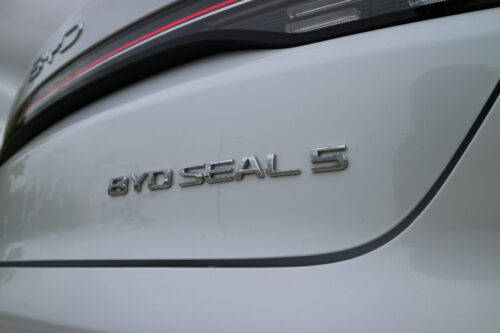How to diagnose car leaks

- KEY TAKEAWAYS
- Why diagnosing leaks is important
- Understanding car fluids
- Common causes of car leaks
- Oil leaks
- Transmission fluid leaks
- Coolant leaks
- Brake fluid leaks
- Power steering fluid leaks
- Identifying leaks through smell
- Diagnosing leaks by consistency
- Assessing the severity of car leaks
- Prevention and maintenance
- When to seek professional help for car leaks
Car leaks are a common issue faced by car owners, and they can be indicative of serious problems if left unaddressed. However, diagnosing car leaks can be difficult, especially if you are not familiar with the different types of car fluids and their properties.
KEY TAKEAWAYS
Can I drive my car if it has a leak?
It depends on the severity and type of the leak. If the leak is minor and doesn't affect the safety or performance of your car, you may be able to drive it for a short distance. However, if the leak is major or affects crucial systems such as brakes or steering, it's best to avoid driving your car until you can address the issue.How can I prevent car leaks?
Regular maintenance and care are the best ways to prevent car leaks. Follow your car's maintenance schedule and perform routine checks on your fluids, hoses, and belts. Avoid driving on rough terrain or roads with potholes and avoid overloading your car. Additionally, be mindful of any strange smells or noises and address them promptly.Luckily, there are two simple methods to help diagnose leaks: by smelling and examining the consistency of the fluid.
Why diagnosing leaks is important
Not only can leaks cause inconvenient stains on your driveway, but they can also be a safety risk. Leaks can cause your car to overheat, lose power, and even break down. Additionally, some fluids can be toxic, flammable, or corrosive, and could harm people or the environment if not dealt with properly.
Understanding car fluids
Your car relies on several different fluids to function properly, including oil, transmission fluid, coolant, brake fluid, and power steering fluid. Each fluid has a specific purpose and characteristics, and identifying leaks by their color, consistency, and smell can help pinpoint the issue.
Common causes of car leaks
There are several reasons why your car may be leaking fluid. Here are some of the most common causes:
Oil leaks
Oil leaks are typically caused by a damaged oil pan or oil gasket. This is one of the most common types of leaks, and the oil will have a distinct petroleum smell.
Transmission fluid leaks
Transmission fluid leaks can be caused by worn-out seals or damaged transmission lines. The fluid will have a slightly sweet smell, and the consistency will be thicker than oil.
Coolant leaks
Coolant leaks are often caused by a damaged radiator, water pump, or hoses. The fluid is usually green or orange and has a sweet smell similar to maple syrup.
Brake fluid leaks
Brake fluid leaks can be caused by a damaged master cylinder or brake lines. The fluid is usually clear or yellow and often smells like fish oil.
Power steering fluid leaks
Power steering fluid usually leaks when your car’s seals and o-rings lose form due to age or when the o-rings break into chunks due to mileage and circulate in the fluid. The fluid is typically reddish or light brown and often smells like burnt marshmallow with a hint of fish-oil smell.
Identifying leaks through smell
Start by checking the different fluids and identifying the smell of each. Then, check around the engine and undercarriage for any wet spots or dripping. If you cannot find the source of the leak, try following your nose until you find the strongest odor.
Diagnosing leaks by consistency
The consistency of the fluid can give you an idea of where the leak is coming from. For example, thicker fluids like transmission fluid are more likely to leak from the transmission itself, while thinner fluids like brake fluid may leak from the master cylinder or brake lines.
Check each fluid by wiping it up with a white paper towel or rag. Oil will be brown or black, and feel slippery. Transmission fluid will be thick and feel slightly sticky. Coolant will be thin and have a distinct color. Brake fluid will be thin and feel slick. Power steering fluid will also be thin in consistency. By examining the consistency of each fluid, you can narrow down the source of the leak.
Assessing the severity of car leaks
A car leak is never a good sign. The mere sight of a puddle beneath your vehicle is enough to send shivers down your spine. But before you panic, it is important to assess the severity of the leak. Not all leaks are created equal and some are more urgent than others.

The amount of fluid leaking can be a good indicator of how severe the problem is. A small drip is obviously less worrying than a steady stream. However, even a small leak can indicate a problem that needs attention before it gets worse.
The urgency of the issue also depends on the type of fluid that is leaking. Brake fluid and transmission fluid, for example, are critical to the safe operation of your car, so any leaks involving these fluids should be addressed immediately. On the other hand, a small oil leak might not require immediate attention, but it is still important to get it fixed to avoid further damage to your engine.
Prevention and maintenance
Make sure you are using the correct type and grade of fluids recommended by your car's manufacturer. This includes oil, brake fluid, transmission fluid, coolant, and power steering fluid. Check the levels regularly and top up as needed.
Regular maintenance, including oil changes, brake checks, and fluid flushes, can help prevent leaks from happening in the first place. If you have noticed a small leak, getting it fixed as soon as possible can prevent it from turning into a bigger and more expensive problem.
When to seek professional help for car leaks
While some car leaks can be fixed with basic DIY skills, others require the expertise of a professional mechanic.
If you have tried to fix the leak on your own but the problem persists, it is time to seek professional help. Continuing to drive with a leak that you can't fix yourself could be dangerous and cause further damage to your car.
When choosing a mechanic to fix your car's leak, it is important to do your research. Look for a reputable mechanic with experience working on your make and model of car. Ask for references and read online reviews to get a sense of their reputation.
Car leaks may seem like a minor inconvenience, but they can actually be a sign of a more serious problem. Early detection and regular maintenance can help keep your car leak-free and prevent more costly repairs down the road.
Photos from File
Sell your car at the best price
 Verified and genuine buyers
Verified and genuine buyers
PIMS 2024
- Latest
- Popular
You might also be interested in
- News
- Featured Stories
- Latest
- Upcoming
- Popular
Latest Car Videos on Zigwheels

Car Articles From Carmudi
- journal
- advice
- financing
- insurance




















































































